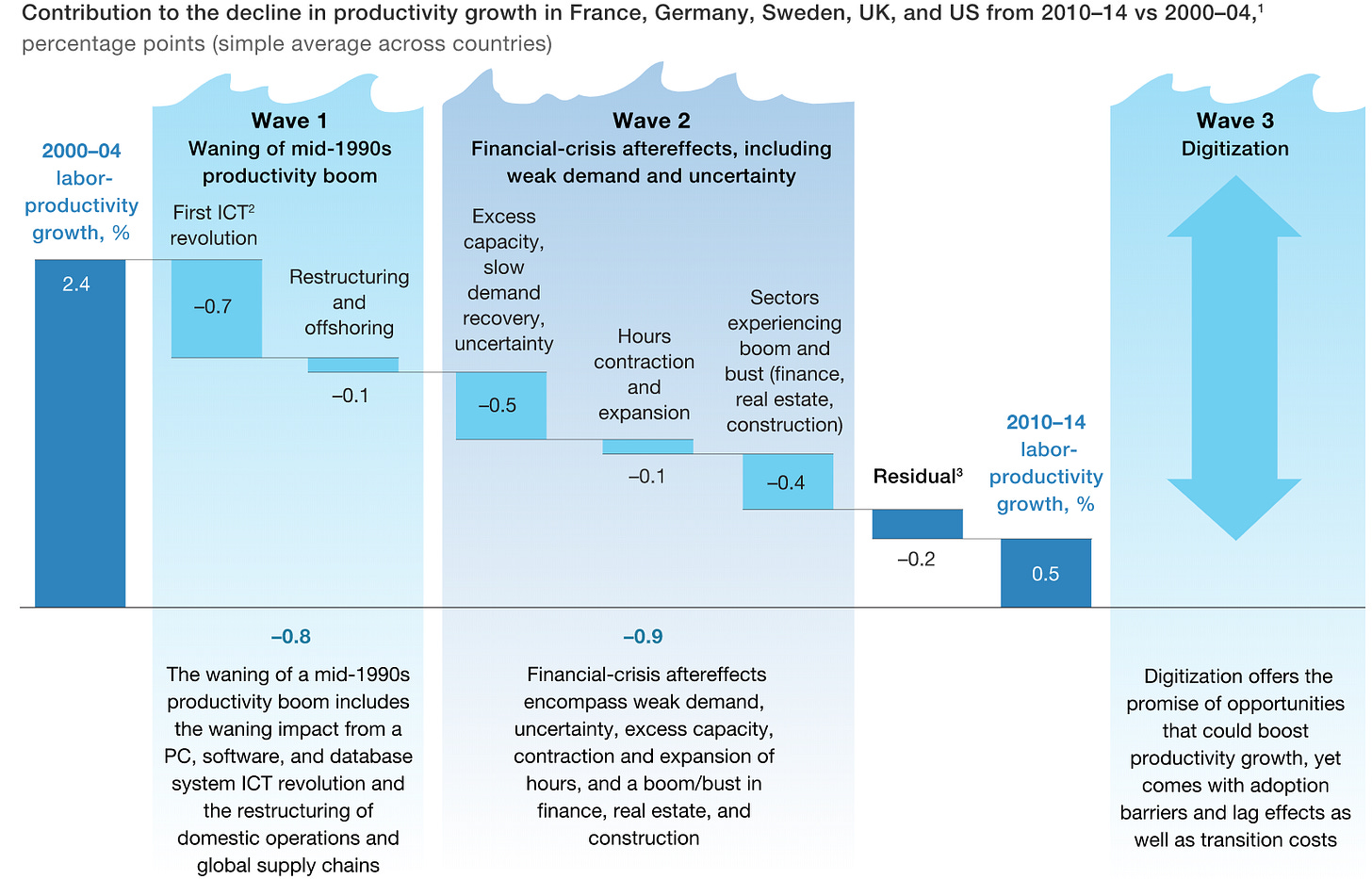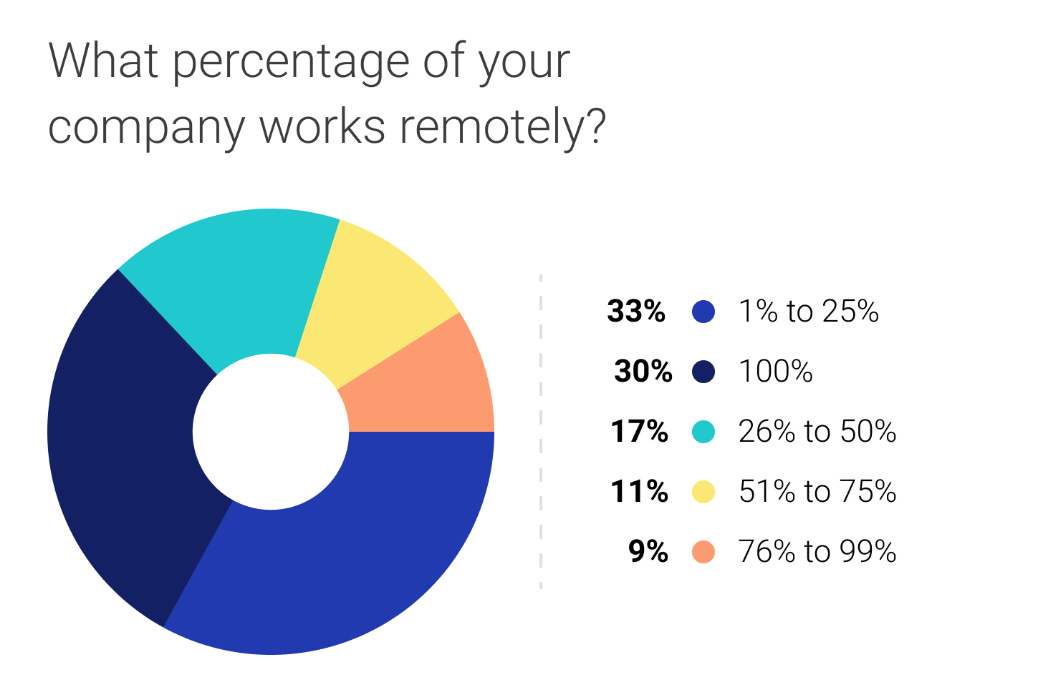The Future of Work, Remote - Transcend Newsletter IX 💻
A macro-level analysis of remote-work, EdTech VC chats and a remote software development school.
Good morning!
We are back another week - this time with a focus on remote work. Everybody seems to be talking about remote work these days, but mostly focus on the micro-level challenges and opportunities today.
Our goal in this issue will be to look at remote work from a macro-level perspective: what does it mean for the future of work, and how might this be reflected in the way we learn?

Transcend Chats - next Monday August 19th we’ll be having an online discussion with James Kim (Reach Capital). Sign up here and feel free to submit your questions here.
If you enjoy this newsletter, please forward it to friends that might enjoy it too! And know we are one email away, anytime. Find more about our work at Transcend Network.

Remote work is a constant topic of conversation and growing trend around the world: in the US alone, 43% of workers spent time working remotely last year, and 57M work as freelancers (set to surpass 50% of the workforce by 2027).
While there are countless blog posts outlining the many challenges and opportunities for remote workers, we want to dive into how remote work might shape they way companies operate and people learn. What are the structural changes that remote work might enable?
Why care about remote work?
Let’s look at remote work from a 30,000 foot view. Global productivity levels have been stagnant for years and the labour market has become less fluid in terms of reallocation of labor in many high-income economies, both posing a threat to economic growth; automation presents a solution to these challenges, as firms will seek to eliminate unproductive roles that can be automated.

Under the new business models enabled by the automation of traditional industries such as the taxi industry, the role of humans in work has become much more flexible than it ever was before (with the rise of the gig economy earlier this decade). Add to this the decreasing barriers to cross-country hiring, and increasing global connection, and we can see that the role of human labor in the world economy will be changing fundamentally in the next decades.
Remote work is only a part of this larger shift towards a new model for human labor.

Remote work today
The overwhelming majority of remote teams, according to Buffer, have a small part of their team working remotely (30% of the company) while the rest still work from an office. The main motivation for remote workers is their ability to have more flexible work, followed by the ability to work from home.

A number of solutions are being designed to tackle the most common challenges, including loneliness in the workplace (most often at their home), work-life balance, distractions, the lack of serendipity from physical conversations, communication issues and challenging relationships with the onsite teams.
Looking beyond these micro-level dynamics, and in addition to the increased global access and automation, remote work could fundamentally change the following points:
Hiring goes truly global: we’ve been hearing about global teams for decades, but the reality on the ground has been that, while talent is equally distributed, opportunity is not. Initiatives like Andela, Wethos, Pesto or Nova Semita get us closer to that version of the world.
Jobs of the future: with lower-skill jobs gone, new opportunities will come about for citizens, many involving technology and remote work to generate income in ways that are more human and irreplaceable by machines: 54% of the U.S. workforce said they’re not very confident that work they do will even exist in 20 years.
Office-less work (sometimes): we might have to rethink whether we want to be in an office at all! And that’s a good thing: some creative work benefits from face-to-face interaction (brainstorming sessions) while execution is generally easier while working individually.
The benefits of tomorrow: with less benefits and job security as freelancing becomes commonplace, new initiatives like Catch or SafetyWing will transition benefits into a new era of work.
New management for remote-first teams: it’s not the tools we use, but the management and leadership styles that will make remote work work. Remote work requires a heavier focus on process (to avoid communication breakdown and in the absence of quick meetings), robust frameworks for when to make use of online and offline interactions and better tools to augment team relationships. Examples include Product Hunt and many others.
What do you think? We’d love to get your thoughts, please leave a comment at the bottom of the newsletter!
Other news and exciting projects
The London Interdisciplinary School, a new undergraduate degree focused on fostering interdisciplinary thinking to solve real-world problems, will be launching in 2020. The curriculum emphasizes the need to study methods and “superconcepts” over traditional subjects.
“Of Digital Streams, Campfires and Gardens” is a much-needed short essay on how to think about different types of digital content from an information consumption perspective.
Madrid-based IronHack raises $4M to continue expanding its global network of full-time coding bootcamps across LATAM and Europe.
ImpactEd published a new report analyzing the Education to Employment pathways across different countries through a comparative approach.


Wes - “Hi, I'm Wes. I lead marketing at Microverse, a global school for remote software developers, while splitting my time between Indianapolis (USA) and Medellín (Colombia). Reach out to talk about the future of peer to peer education, remote work, Latin American tech hubs, and coffee. ”
Wanna say hi? Tell us about yourself and we’ll introduce you in the next issue!


Microverse
Background
Microverse is a global, distributed school for software developers that doesn't charge students anything until they get hired.
At Microverse, there are no classes or physical classrooms. Instead, students learn through a very unique approach — by remote pair programming and collaborating with other students in real-time, just as they would with colleagues in a real company.
How is it shaping the future of learning and work?
Microverse’s peer-to-peer dynamics make it possible to invest in students’ education from any country in the world through the world’s first global ISA.
Currently, Microverse has full-time students in 70+ countries, thousands of applicants per month from ~200 countries, and graduates from Nigeria to Mexico that have increased their salaries by 2-8x after completing the program.
Call to Action (from Wes Wagner, Head of Marketing & Growth at Microverse)
Microverse plans to grow its team in the coming months, and I'd love for you to know as soon as we post new job opportunities. Stay up to date by following Microverse on AngelList and Ariel Camus (Founder & CEO) on Twitter.


Featured Opportunity
Minerva Schools is hiring an Associate for Global Network Development in San Francisco. The role will involve managing Minerva’s network of partners to create opportunities for students, and work with other team members to ensure the execution of these partnerships.
Let us know if you are interested in learning more about the role, and we can introduce you to the Minerva team!
Jobs in our Network
Graide Network - Marketing Manager
Aula - Multiple Roles (Remote, US & UK)
Minerva Project: Marketing Manager, Graduate Programs
Christensen Institute - Research Fellow, Education Practice
codeSpark - Full-Stack Developer
d.school K12 Lab - Education Futurist Fellow
Contracting opportunities with Transcend Network
We are always looking to match individuals in our network with opportunities, particularly if you have a background in a) learning/curriculum development, b) community management/social media or c) product management
Let us know which skills and sectors you have experience in, as well as your interest, by dropping us an email here.
For any feedback, requests or suggested content/listings, take just one minute to fill out this form.
Alberto (alberto@transcend-network.com) & Michael (michael@transcend-network.com)


